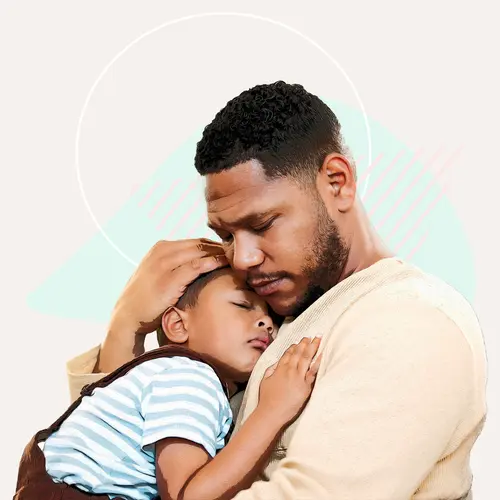It's natural for parents to want the best for their children. Anyone who’s raising kids is tempted to stop and help when their child struggles or offer suggestions to make their life easier. But you can also take that urge too far. Sometimes, adults risk becoming so-called helicopter parents who never stop hovering about their child.
Helicopter parents usually mean well, but over time, constantly interfering in your child's life will do more harm than good. Children whose parents exert too much control and influence in their lives may have trouble learning to cope on their own when they grow up.
What Is a Helicopter Parent?
The term "helicopter parent" was first used in Haim Ginott's 1969 book Parents & Teenagers. Ginott spoke to a teen who compared his mother to a helicopter and said he was tired of her "noise and hot air".
These days, we use the phrase to describe parents who are overprotective, controlling, or quick to interfere on their child's behalf. You might see a helicopter parent right beside a toddler, telling the child what to do and how to play.
As a child grows, a helicopter parent might schedule too many activities. For high school students, helicopter parents monitor students' grades very closely and get involved when they see a grade they don't like. They might start helping with homework or even going to a teacher or school administrator to demand that they reconsider the grade.
College kids might find their helicopter parents taking an active role in their on-campus life. Parents may choose their classes and oversee their studies. Helicopter parents might also step in to help with basic activities like laundry or making travel arrangements.
The Impact of Helicopter Parenting on Kids
Researchers who’ve followed children with over-involved parents find that too much attention isn't always good for them. Helicopter parents can hurt their kids' emotional development, leading to:
Slower social and academic development. One study followed a group of children from ages 2 to 10. Those whose parents were more controlling were less able to manage their emotions and behavior. Their social skills suffered as a result. By the time they were 10, children with helicopter parents didn't do as well in school as kids with less controlling parents.
Mental health issues. Some research has suggested that helicopter parenting raises the risk of mental health issues. Parents who do too much for their kids can damage their self-esteem. The child might grow up feeling like their parents don't believe that they can do things on their own. College students with over-involved parents tend to be more likely to have symptoms of depression and anxiety.
Burnout. Older children of helicopter parents are more prone to academic burnout than their peers. Part of that is because they worry their parents will be disappointed if they fail.
Lack of self-control. Another issue is that these students haven't learned self-control skills. If they have come to rely on parents to micromanage their lives, the stress of living on their own can be an unpleasant surprise. If they never learned effective emotional coping strategies, they can easily find college life and adulthood overwhelming.
Changes You Can Make to Avoid Being A Helicopter Parent
If you're worried that you're doing too much for your children, it's not hard to change your ways. Try these tips for giving your child more space to mature on their own.
Listen to your kids. Give your children time to share their ideas and opinions. Let them know that their ideas matter to you.
Don't jump right in. If your child faces a challenge, let them try to solve it by themselves. Be willing to help if they ask, but don't offer the help they may not want or need.
Embrace a growth mindset. Teach kids that every mistake is an opportunity to learn. Let them know that they can often try again if something doesn't go right the first time.
Face your own anxiety. Your need for control may stem from your fear of bad things happening to your child. Don't let your worries prevent your child from trying new things on their own.
If you're worried that your parenting style will hurt your child, ask their pediatrician for advice. You can also call a counselor, parenting coach, or psychologist to talk about your feelings and set new parenting strategies.

